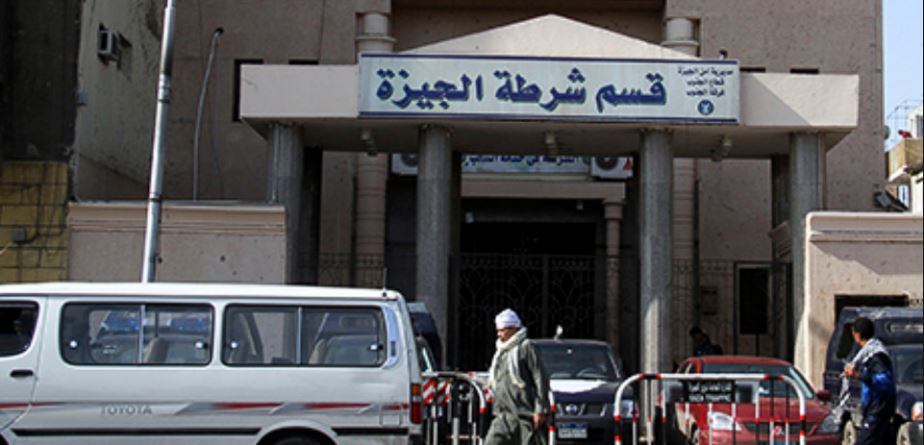Egypt’s problems with torture are well documented. Inhumane practices that cause humiliation, severe psychological damage, and even death have become systematic inside Egyptian police stations, detention centers, and prisons. The El Nadeem Center for the Rehabilitation of Victims of Violence—an Egyptian nonprofit group specialized in aiding victims of torture which was recently shut down by the authorities—reported in its last report that in January 2017 only there were 49 cases of torture documented, with 16 cases ending in the death of the victim. Moreover, committing the act of torture is not the only way the Egyptian regime showed its support for torture, creating an atmosphere that encourages torture by different state security departments.
An incompetent and brutal institution such as the Egyptian Ministry of Interior depends heavily on torture, considering it a quick and easy way to extract confessions, whether true or false, and to break the regime’s opposition. The crime of torture is widespread in Egypt, despite the fact that it is criminalized by Article 126 of the Egyptian Penal Code, which also criminalizes cruelty by officials (Article 129) as well as arbitrary detention. The practice of torture by Egyptian officials also goes flatly against several international obligations, including the Universal Declaration of Human Rights, the International Covenant on Civil and Political Rights, and the Convention against Torture or Other Cruel, Inhuman or Degrading Treatment or Punishment. But beyond the act of torture itself, there are other measures carried out by the Egyptian regime that show a relentless and persistent attitude to endorse torture.
The first way the Egyptian regime showed its full support to torture is by hunting down human rights organizations and rehabilitation centers who specialize in torture cases. The aforementioned El Nadeem Center is considered a pioneer institute in the Middle East in the field of rehabilitation of the victims of torture. El Nadeem was established in 1993, and provided thousands of victims of torture with psychological support, and offered legal support, and researched the physical and psychological effects of torture. The center also helps survivors of torture to have their voice heard by publishing their stories in media and documenting and gathering data on torture and publishing periodical reports.
On February 9, 2017, 15 police officers in civilian clothes closed and sealed with tape and red wax the doors of the three flats occupied by El Nadeem. At the time, the premises were vacant as the center is closed on Thursdays and Fridays. The Ministry of Health stated that the closure came as a result of the center practicing unlicensed activities, which are most probably online activism and advocacy against torture. The closure of El Nadeem is not a single incident, but it comes as a part of a massive crackdown on nongovernmental organizations in Egypt, where many such associations have combating torture on their agendas. This crackdown has been manifested in different forms, such as the prosecution of human rights defenders and banning them from travel, or by the Egyptian Parliament passing a new NGO law that restrains the work of human rights organizations in general.
In one of the clear cases that shows the authorities’ zero-tolerance attitude toward activism against torture is the case of Mahmoud Mohamed, also known as the T-shirt detainee. Mahmoud, then 18 years old, was arrested on January 25, 2014, during a demonstration to commemorate the revolution’s third anniversary while wearing a t-shirt with “A Homeland without Torture” written on it. Mahmoud was charged with demonstrating and inciting riots, but he was never presented to trial and he spent 700 days in detention until he was released. In detention, Mahmoud suffered severe medical issues that caused him partial disability in his right leg. Mahmoud was released after continuous campaigns from human rights activists and organizations after his health conditions deteriorated. Mahmoud’s only crime was that he dreamed of a homeland without torture under a regime that supports torture and suppresses those who speak against it.
Another form of endorsement of torture by the regime is misleading justice and presenting false evidence in cases related to torture. Giulio Regeni was an Italian Ph.D. student at Cambridge, researching Egypt’s independent trade unions. His dead body was found on the side of the Cairo-Alexandria highway on February 3, 2016, showing signs of torture including bruising from kicking, punching, and assault with a stick; broken fingers, toes, legs, arms, and shoulder blades; stab wounds; cigarette burns; a brain hemorrhage; and a broken cervical vertebra, which is believed to be the cause of his death. The way Regeni was tortured was very similar to torture techniques documented in many cases that are used by the Egyptian Ministry of Interior during its interrogations.
 Major General Khaled Shalaby is the Director of Security in the governorate of Fayoum. Prior to his current appointment, Shalaby served as Director of Police Investigations for the Giza General Directorate, and was previously the deputy director of the same department. He rose through the ranks in Alexandria, where he was a precinct chief and later Director of Investigations for the governorate. See full ESW profile.
Major General Khaled Shalaby is the Director of Security in the governorate of Fayoum. Prior to his current appointment, Shalaby served as Director of Police Investigations for the Giza General Directorate, and was previously the deputy director of the same department. He rose through the ranks in Alexandria, where he was a precinct chief and later Director of Investigations for the governorate. See full ESW profile.
The police quickly denied having anything to do with Regeni’s disappearance, torture, and death, and have continued to do so. Their intransigence and inscrutability in the Regeni case have inadvertently highlighted another way that the Egyptian regime has spread the culture of torture: promoting officers involved in torture accusations to higher ranks or appointing them to prestigious positions. Major General Khaled Shalaby was the Director of Investigations for Giza when Regeni was murdered (see sidebar). Shalaby initially claimed that Regeni was killed in a car accident, which completely contradicted the results of the forensic reports; the interior ministry backed off that claim without formally repudiating it. Shalaby’s name surfaced in several Italian media reports as having been the person who ordered surveillance of Regeni. Activists then highlighted that Shalaby had been convicted in a 1999 case of torturing someone to death; he received a suspended one-year sentence and was not publicly disciplined by the ministry. He was also accused of killing protesters during the January 25 Revolution in 2011, though those charges were never pursued. Shalaby was promoted this year to be the Director of Security in Fayoum governorate.
Further showing the regime’s effort to promote those who are involved in torture incidents, ex-officer Alaa Abed was selected to chair the Human Rights Committee in the Egyptian House of Representatives. According to reports from the Egyptian Organization of Human Rights, Abed was involved in torture cases dating back to 2006. Human rights organizations protested his appointment and sent complaints to the speaker of parliament, but these complaints were ignored, which demonstrates the Egyptian regime’s and all its institutions’ full endorsement of torture.
Finally, impunity is a major issue when it comes to torture cases in Egypt. Impunity is widespread in Egypt in all kinds of crimes committed by officials, especially those that are related to corruption, and torture is on top of the list of these crimes. One reason behind the spread of impunity in torture cases is legal technicality. The Egyptian Penal Code, as we stated before, defined torture; however, this definition is limited to the specific case where the victim is a suspect who was tortured to extract confessions. In many documented torture cases, the victims were arbitrarily arrested, which means that they are not officially detained and not registered in official records. Accordingly, the interior ministry’s obvious response to torture accusations is that the victim was never detained nor has been a suspect in an investigation.
Due to the absence of political will to punish those who perpetrate the crime of torture, hundreds of cases went unpunished. There are many cases where, police officers committed torture yet were never tried despite weighty evidence, such as the cases of Essam Atta and Magdy Makeen.
Even in the few cases that torture turned into a public issue and the authorities were pressured to try the officer, we still see the authorities showing support to the perpetrators. For example, in case of Emad al-Kabir, a microbus driver who was sodomized with a stick, police officer Eslam Nabieh was later brought to court and sentenced to imprisonment. Despite the appearance that justice was served, the authorities doggedly supported the perpetrator and by reinstated him to his former position and rank after he was released. This act violates the law which requires a clean criminal record for those holding official positions.
The Egyptian authorities are not only practicing the crime of torture, but also endorsing different ways to support torture and to spread it. These ways include the closure of organizations combating torture, arresting anti-torture activists, impeding justice, falsifying evidence, granting impunity to perpetrators in different ways, and even promoting officers involved in torture to higher offices. The fight against torture is long and full of dangers under a state which embraces torture as a means of ruling and which undermines basic rights as they ostensibly attempt to maintain stability and security. The regime fails to understand that when the government is the one that breaks the law, it is the sign of the downfall of the state.
